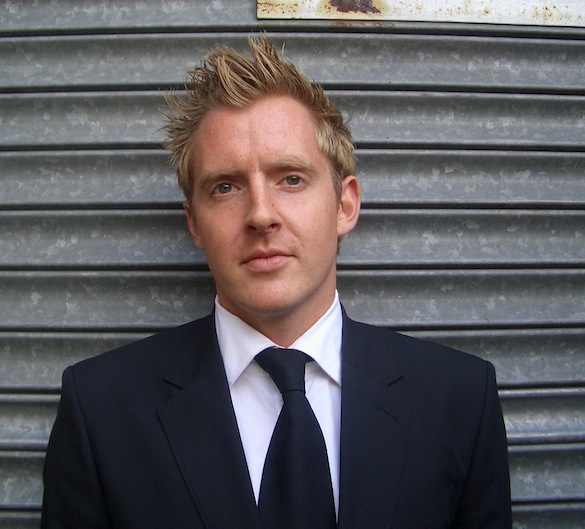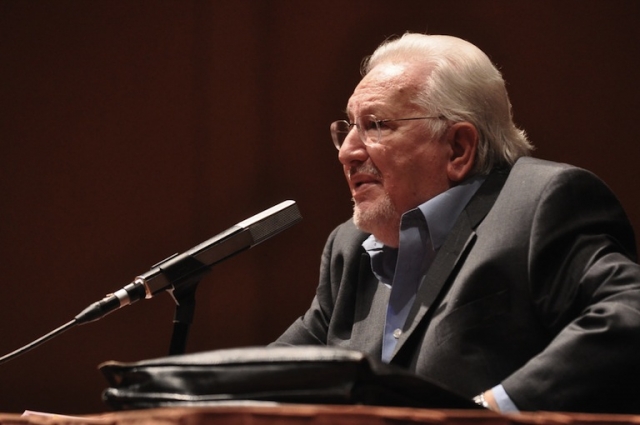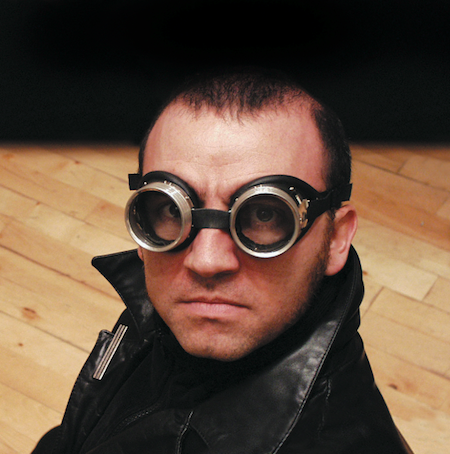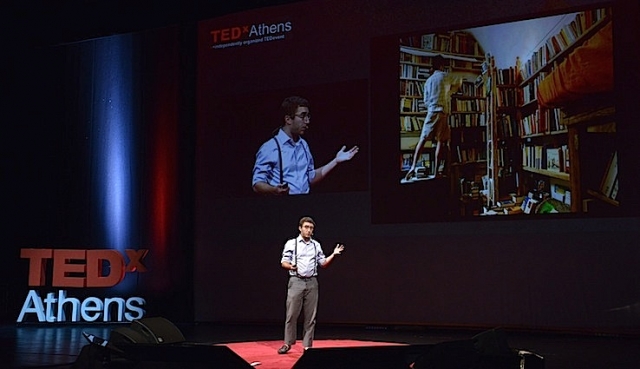Victoria Mindova
The destruction of human resources is one of the biggest problems of our time, says marketing expert Sam Conniff from Great Britain. He spoke at this year's TEDx Athens forum, which was dedicated to people who are not afraid of acting instead of just planning. Sam Conniff presented his own business that combines entrepreneurship with social activities. He has united his knowledge in the field of corporate marketing with the desire to contribute something to the common good in a successful project for social regeneration of young people who have served their sentences. His efforts are directed towards those young people who did not have an equal chance in society, got into the system but want to start a new life, and even their own business.
Conniff refers to statistics showing that 90% of young people, who have been in jail, can never be  rehabilitated into society. The likelihood of them breaking the law a year after their release is extremely high. This means that in 90% of the cases, when we were trying to fix something it failed, the marketing experts says and adds, "Imagine that 90% of the iPads or iPhones we use are defective. That would be a disaster for the company and it could not have existed. Why should we leave 90% of young people having a disadvantaged start to fail forever?" he asks rhetorically. He believes that everyone should be given a second chance.
rehabilitated into society. The likelihood of them breaking the law a year after their release is extremely high. This means that in 90% of the cases, when we were trying to fix something it failed, the marketing experts says and adds, "Imagine that 90% of the iPads or iPhones we use are defective. That would be a disaster for the company and it could not have existed. Why should we leave 90% of young people having a disadvantaged start to fail forever?" he asks rhetorically. He believes that everyone should be given a second chance.
According to data presented by Conniff, it has been estimated in the United States that the entire life cycle of young people with behavioural problems has cost the government about 4.7 trillion dollars. This includes food, health insurance, legal costs and other resources necessary to provide for the criminals. In Europe, the number of young criminals is over 14 million. The natural approach of society towards them is to isolate them early in their lifetime.
Conniff focuses on the main problem of how to turn the social cost related to disadvantaged young people into social capital. The answer is to give them a chance to learn new things, develop hidden talents and introduce them to activities that will be successful for them as well as for society.
That is why Conniff abandoned corporate marketing 15 years ago and created the Livity non-profit organization. It trains young people with problems in practical business skills that can be useful to develop their business ideas in practice. It trains them to work with computers, manage projects, gives them basic knowledge in the field of company management. The company motto is: "To save the world through marketing."
The goal is to find the individual talent of everyone wishing to change their lives in order to become useful to themselves and society. Conniff is clear that if someone really believes in and gives a chance to young people who have been in trouble with the law, they can become creative and put aside the self-destructive practices.
"The status of all young people today is that they belong to the digital natives. When talking with employers and businessmen, they often require their employees to have digital skills." So, the organization has a programme that is aimed at the most disadvantaged young people. "This programme reinforces and further develops digital skills and employers line up for these employees. The gaps are clear and we only need to shorten the distance between the young people and the business. We must create new opportunities rather than block them," said the businessman.
The founder of Livity calls each of us to find ways to support organizations dealing with disadvantaged young people, whether we become mentors or professionals whose knowledge can contribute to their development and training. Sam Conniff ensures that this activity will be useful for the people putting their time in the process of integration of young people as well as for the young people who want to build a clean future.
"Take a difficulty that you have to overcome and share it with the young man in front of you. He will give you a new, fresh perspective on things. Thus, you will find the solution to your problem. Similarly, you can help the young man resolve his difficulties."
To overcome scepticism, the marketing expert said that Livity has already carried out a similar experiment that has proved extremely successful. They put together 12 of the most influential executives of energy companies with 12 young people seeking social rehabilitation through the organization. They were divided into groups of two for a short time and were left alone in order for everyone to present his problems and discuss them with the other side.
"In 15 minutes, the scepticism left their faces." Each pair had either reached a decision regarding the problems discussed, or put them in a completely different light, which changes the approach to theirsolution.
The result of the experiment showed that erudite and successful managers had a lot to learn from their meetings with the young people. The young people, in turn, had the chance to share and even resolve their concerns and anxieties, because for the first time, high-standing persons had spared the time to devote their attention to them.
Conniff sees something positive in the collective loss of confidence in the people who govern us. He believes that in this way, we transfer the responsibility to ourselves and take the development into our own hands. "Mutual assistance is a simple act of a profound effect on the soul of a young man. This action will cost you nothing if you do it, but it can cost us everything if we ignore it."
 There are children and young people with problems in Greece too, confirmed the specialist in psychiatry and child psychology, Mateos Yosafat. According to him, the crisis that the country is experiencing today is not only financial, but also social and psychological. The new generation is lost in the process of changing values and the young people of Greece pay the cost of the lost road.
There are children and young people with problems in Greece too, confirmed the specialist in psychiatry and child psychology, Mateos Yosafat. According to him, the crisis that the country is experiencing today is not only financial, but also social and psychological. The new generation is lost in the process of changing values and the young people of Greece pay the cost of the lost road.
The lack of responsibility for the actions taken has become a typical feature of the nation in recent decades. This phenomenon occurs at different levels in his opinion - "It is not my fault, others are responsible for my condition", "It is not my party, but the opposition that is to blame for the state of the country", "I am not responsible for the situation in which I am, the foreigners are to blame."
In Greece, we are inclined to reflect our problem on others, says the psychologist. One’s desire to contribute to the common good is rarely seen in society and the ego prevails in the incentives for decision-making.
"We do not know how to behave with each other. Illegality and overconsumption exist in society and we were taught for many years that they were the purpose of life. So, we have lost our moral values. There is no team spirit, and (as we know from psychoanalysis) a person is happy only when he or she exists and develops in a network of relationships and commitment. This relates to the most general sense of love and the ability to live with the people around us in our lifetimes."
Yosafat stresses that the issue is not ethical but purely psychological. "A large part of Greek youth seeks satisfaction in the greater consumerism, drugs, sex," says the psychologist.
A person who offers nothing to society can feel neither satisfied nor happy. Hence, the problems of young people who feel frustrated and then destructive forces awaken inside them.
Yosafat was the director of the Finchley Centre for Child and Family Therapy in London for many years. After decades of working abroad, he has decided to return to Greece, where he is considered one of the founders of the group family therapy in the country. So far, he has trained over 400 professionals working in the field of group family therapy. They work in hospitals, clinics and private practices. This area trains people with behavioural problems to live together with others, to be complete citizens and to contribute towards their personal and common development.
In order for the society to be more effective and to function healthily in a broader context, Mateos Yosafat proposes that the curriculum includes a special class in "Life" from a young age. The aim of this class will be to teach children how to build healthy human relationships, know good from evil and make choices based on positive examples. His theory is that when a country is in crisis, the family, being the smallest social unit, is able to reform. "The crisis can turn us into a positive direction. It can make us understand that we are part of a whole, not just individuals." So, now is the time to introduce such a practice, which will create conditions for the development of a new more sustainable future generation.
"The more you work, the luckier you will become," said Victor Cohen, who is a graphic designer and  works for magazines such as Time, Newsweek, Forbes and the New York Times. He spoke about how you can be successful even if you live in a crisis. Cohen said that he followed the advice of someone who he had met at the beginning of his career. "To be successful, you have to know everything about something and something about everything." The designer is clear that one has to devote tens of thousands of hours of one's life to become really good at what one does. It takes time, hard work and strong organization.
works for magazines such as Time, Newsweek, Forbes and the New York Times. He spoke about how you can be successful even if you live in a crisis. Cohen said that he followed the advice of someone who he had met at the beginning of his career. "To be successful, you have to know everything about something and something about everything." The designer is clear that one has to devote tens of thousands of hours of one's life to become really good at what one does. It takes time, hard work and strong organization.
"It does not matter who you ask, whether a virtuoso guitarist or a successful businessman. Everyone will tell you that success is achieved after a series of failures and thousands of hours of work. There is no other way." Therefore, the moment you find the area in which you want to progress, you have to indulge one hundred percent in the name of development. If someone has not found the exact thing, he should not give up but continue searching. In his opinion, talent is the patience that one has to become a specialist and it takes time to gain it.
 An example that anyone can become successful without pursuing an aggressive corporate career is the story of Craig Walzler, who decided practically for fun to open a bookshop on the island of Santorini 10 years ago. As a student in the final year of his studies, Craig and a friend of his went on holiday to the island with the most beautiful sunset in the northern hemisphere. By the middle of their vacation, the two young people had read the books they had taken with them and remained without any reading material. They decided to buy new books to kill time on the beach, but it turned out that there was neither a bookshop nor a library in Santorini. "We toured the entire island. Once we returned to the hotel, we poured ourselves some wine and decided that we would open a bookshop in order not to allow anyone else to go through our pain," said Craig jokingly. The year was 2002.
An example that anyone can become successful without pursuing an aggressive corporate career is the story of Craig Walzler, who decided practically for fun to open a bookshop on the island of Santorini 10 years ago. As a student in the final year of his studies, Craig and a friend of his went on holiday to the island with the most beautiful sunset in the northern hemisphere. By the middle of their vacation, the two young people had read the books they had taken with them and remained without any reading material. They decided to buy new books to kill time on the beach, but it turned out that there was neither a bookshop nor a library in Santorini. "We toured the entire island. Once we returned to the hotel, we poured ourselves some wine and decided that we would open a bookshop in order not to allow anyone else to go through our pain," said Craig jokingly. The year was 2002.
On returning to the United States, the two young people stopped by the US Embassy in Athens to check the conditions for foreigners to open a business in Greece. It proved a turning point in their lives. The person in charge of trade relations told them that everything was easy.
"It gave us wings," Craig said. A year later, he will realize that this was a "white" lie on the part of the commercial attaché, which had held back from them the truth about the work of the Greek public administration. "If someone had told us what we would have had to go through, we would have given up," he said of his misadventures with the local bureaucracy and added, "It was good that we did not know."
Now, Atlantis is set to be the best bookshop in the world according to The Guardian magazine, and enjoys thousands of visitors each year. Craig says every winter is a challenge to him and his friends due to the declining flow of tourists but hopes that one day he will be able to hand down the care of Atlantis to his children.
The essence of the TEDx Athens forum was to show the good examples of successful people regardless of the environment in which they develop. Whether positive practices have been designed to solve social and community problems or if they are the result of an internal necessity for proving oneself, they have become a successful business model that creates growth prospects at a personal level and contributes to the improvement of the environment as a whole. Personal stories of real people who dared to put all their efforts into an idea to make the world and themselves a little better.